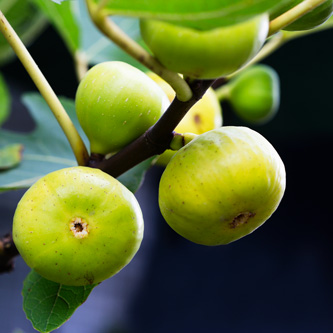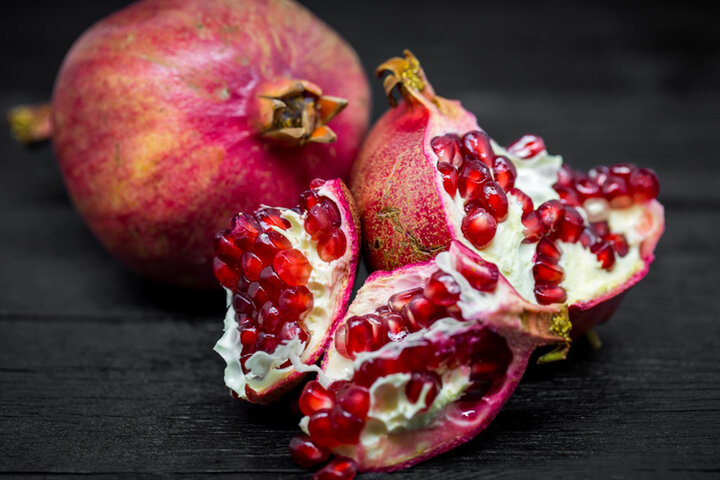KEYWORDS
Botanicals
Weight Management
Polyphenols
Mediterranean Diet
Blood Sugar
Skin
Metabolic
Joint
Immunity
Abstract
According to the latest World Obesity Atlas 2023, prevalence is rising rapidly, especially in middle income countries. (1). If current patterns continue, by 2035, 51% of the world’s population will be overweight or obese. The prevalence of obesity (BMI ≥30kg/m²) alone is anticipated to rise from 14% to 24% of the population, affecting nearly 2 billion adults, children and adolescents by 2035. In the European Region, obesity is predicted to affect 35% of all women and 39% of all men by 2035. So, clearly, there is a need for targeted solutions to counteract this worrying trend. The article aims to promote a holistic approach to weight management, particularly emphasizing the benefits of botanical extracts.
Holistic health approach
As everyone’s metabolism is different, maintaining a healthy weight is more complex than simply counting calories. It’s about a balanced diet, regular exercise, managing stress and many other factors. As consumers are becoming increasingly aware of the importance of a holistic approach to health, they are paying more attention than ever to the role that nutrition plays in overall wellbeing. According to FMCG Gurus consumer research across 26 countries, people are more likely to say they have “attempted to improve their diet” rather than having “looked to lose weight” (2). This shows that health is no longer associated solely with weight loss. Instead, it’s linked with nutrition, as consumers not only seek to avoid certain ingredients but also absorb others.

Nature’s pharmacy
Dietary supplements can provide support in the fight against obesity when combined with exercise and a balanced nutritional intake, a good example of which is the Mediterranean diet – characterized by high consumption of fruit and vegetables, extra virgin olive oil, whole grains, legumes and nuts. This type of eating pattern contributes to the reduction of visceral fat and other risk factors for cardiovascular and metabolic diseases, thanks to its high content of health-promoting polyphenols, carotenoids and phytosterols. Yet despite health recommendations, daily intake of large portions of fruit, vegetables and olive oil is rarely achievable. However, evidence-based food supplements from sustainable sources provide a valuable solution, as confirmed by market data: Weight management supplements increasingly use natural botanical and fruit ingredients and, according to Innova Market Insights, these ingredients were the fastest growing in the category globally between 2017 and 2021 (3). Botanical compounds that are attracting increasing scientific attention for weight management include abscisic acid (ABA), a phytohormone naturally present in fruits such as figs, and polyphenols – especially punicalagin and urolithin from pomegranate. These compounds have been shown to regulate blood glucose and insulin levels, improve cardiovascular and metabolic function, reduce inflammation and promote satiety and gut health (4-12), all of which are important for both weight management and overall health.
Powerful polyphenols
Results of a human pilot study indicated that participants who consumed a natural pomegranate extract standardized to 30% punicalagins daily for three weeks felt less hungry and more replete after a meal compared to a placebo group (4). In fact, polyphenols may influence satiety signalling via hormones that affect hunger and fullness, and increase adiponectin levels, which may impact fat metabolism and positively influence the microbiome and gut-brain axis through the modulation of satiety-related gut peptides (5). They may also improve metabolic health by modulating blood pressure and stress hormone levels, as shown in a clinical trial which revealed that the intake of pomegranate extract led to significant increases in urinary phenolics excretion and antioxidant capacity, along with reductions in salivary cortisol levels, blood pressure, body fat and fat mass, while lean body mass increased (6). These results confirm previous data, with the pomegranate extract linked to a reduction in insulin resistance and salivary cortisol levels and cortisol/cortisone ratios (7).
Stress hormone cortisol can promote fat storage, increase muscle breakdown and disrupt sleep, which also affects appetite regulation. Therefore, managing stress levels is important for maintaining a healthy weight. When stress is lower, people typically experience more control over their eating habits and eat more intuitively. Similar to stress, sleep also plays a crucial role in regulating metabolism and weight management. Lack of sleep or poor quality sleep can affect impulse control and lead to hormonal imbalances that affect hunger and satiety hormones. When we are well rested, our energy levels rise and we are more likely to move and exercise.
In a recently published pre-clinical study, pomegranate extract was also shown to reduce the adverse effects of high fructose consumption, such as weight gain, hepatic steatosis, dyslipidaemia, inflammatory and immunological responses. In addition, it was reported to have a beneficial effect on metabolic profiles and microbiota composition, thus potentially preventing fructose-induced metabolic damage (8). Another recent pre-clinical study revealed that the same extract reduced the age-related involuntary weight loss, providing a potential approach to an important aspect of frailty in the elderly, and highlighting its holistic properties in overall weight management strategies (9).
Managing blood sugar levels
An ABA-standardized fig extract has been shown to regulate blood glucose and insulin levels, and lower the glycaemic and insulinemic index of high glycaemic foods (10). These effects can promote satiety, reduce cravings for high-sugar foods and support weight management. ABA can increase insulin sensitivity and glycaemic control by modulating metabolic activity in skeletal muscle, which may have implications for weight management too (11). Furthermore, ABA triggers cellular signalling that enhances glucose uptake and increases the expression and membrane translocation of a glucose transporter protein, thus improving glucose homeostasis. In addition, the phytohormone is able to promote the browning of visceral fat, converting white adipose tissue (WAT) into brown adipose tissue (BAT), which plays a crucial role in generating heat through thermogenesis. Notably, studies have identified brown, fat-like cells, referred to as beige cells, within WAT. Increasing the presence of beige adipocytes in WAT has been shown to enhance overall energy expenditure and reduce the risk of obesity, and metabolic diseases resulting from a high-calorie diet (12).

Tapping into a promising market
The mentioned studies and botanical extracts reflect a deeper understanding of the relationship between nutritional supplementation and weight management. They also offer a more comprehensive approach by targeting multiple mechanisms and providing pleiotropic benefits rather than just focusing on a single aspect of weight loss. Today, nutrition is about more than maintaining a healthy waistline and avoiding “dietary evils” such as sugar. Instead, consumers are seeking products that offer genuine nutrition in the form of health-boosting benefits. A report from Mordor Intelligence revealed that the European weight loss management market is projected to grow by 7.68 % annually from 2024 to 2029, driven by the rising prevalence of obesity and chronic diseases such as diabetes. Additionally, preliminary data indicate an increased risk of developing gastric paralysis while taking GLP-1 agonists (13). These injected drugs are in high demand due to their proven effectiveness for weight loss. This development, along with growing consumer desire for holistic and natural solutions, presents significant potential for botanical extracts in weight management supplements.
Gut-metabolic-axis
We will stay in the Mediterranean again with the ingredient Morosil (red moro orange). Red Moro oranges are high in anthocyanins (polyphenols), and research completed with Morosil shows it impacts body weight, waist circumference, and hip circumference. (21)
Gut-skin-axis
We will see amla listed if we refer to the list of ingredients with specific effects on gut health. Amla is also high in polyphenols, and research shows it is an excellent skin health, primarily in control of collagen metabolism. (22)
Conclusion
The growing body of evidence showing that botanicals play an important role directly on gut health and the microbiome is promising. With new research stating the impact of botanicals high in polyphenols on gut health and the microbiome leads us to ask the question, why not combine botanicals with probiotics to achieve a better outcome for the gut, and gut-blank-axis health concerns? Based on the growing body of evidence, botanicals should be considered a primary way to support both gut and gut-blank-axis health concerns.
References and notes
- World Obesity Federation, World Obesity Atlas 2023
- FMCG Gurus, Evolution of Nutrition (Survey involving 26,000 consumers in 26 countries), Q3 2019
- Data from Innova Market Insights, Global, CAGR 2017-2021
- Stockton, A. et al.: Effect of Pomegranate Extract Consumption on Satiety Parameters in Healthy Volunteers: A Preliminary Randomized Study. Foods 2022, 11, 2639.
- Aloo SO et al.: Insights on Dietary Polyphenols as Agents against Metabolic Disorders: Obesity as a Target Disease. Antioxidants (Basel). 2023;12(2):416. Published 2023 Feb 8.
- Al-Dujaili, E.A.S. et al.: Antioxidant Properties and Beneficial Cardiovascular Effects of a Natural Extract of Pomegranate in Healthy Volunteers: A Randomized Preliminary Single-Blind Controlled Study. Antioxidants 2022, 11, 2124.
- Stockton, A. et al.: Effect of pomegranate extract consumption on cardiovascular disease risk factors, stress hormones, and quality of life in human volunteers: An exploratory randomised, double-blind, placebo-controlled trial. EC Nutr. 2015, 2, 396–411.
- Sánchez-Terrón R, et al.: Pomegranate Supplementation Alleviates Dyslipidemia and the Onset of Non-Alcoholic Fatty Liver Disease in Wistar Rats by Shifting Microbiota and Producing Urolithin-like Microbial Metabolites. Food Funct., 2024
- Verdú, D. et al.:Pomegranate Extract Administration Reverses Loss of Motor Coordination and Prevents Oxidative Stress in Cerebellum of Aging Mice. Antioxidants 2023, 12, 1991.
- Atkinson, F.S. et al.: Abscisic Acid Standardized Fig (Ficus carica) Extracts Ameliorate Postprandial Glycemic and Insulinemic Responses in Healthy Adults. Nutrients 2019, 11, 1757.
- Leber A. et al.: Abscisic acid enriched fig extract promotes insulin sensitivity by decreasing systemic inflammation and activating LANCL2 in skeletal muscle. Sci Rep 10, 10463 (2020).
- Sturla L et al.: Abscisic acid enhances glucose disposal and induces brown fat activity in adipocytes in vitro and in vivo. Biochim Biophys Acta Mol Cell Biol Lipids. 2017 Feb;1862(2):131-144. Epub 2016 Nov 15.
- https://edition.cnn.com/2024/05/20/health/glp-1-drugs-stomach-paralysis/index.html



